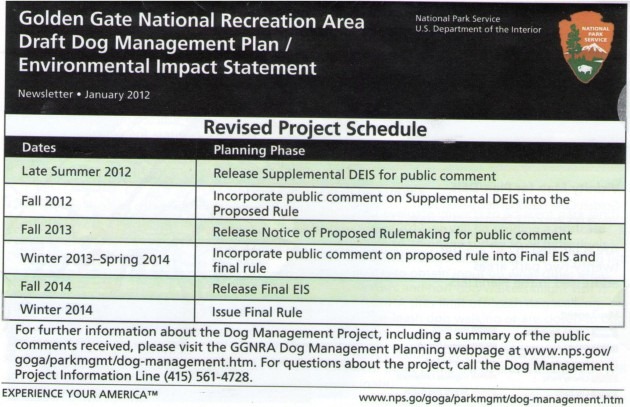Damned by Chuck Palahniuk
3/5
Very much a vehicle for Palahniuk to rant about this and that through the voice of a 13 year old girl condemned to hell, supposedly for overdosing on pot. Entertaining, but felt that the plot served the ranting rather than the other way round.
Links
Shit Programmers Say: http://t.co/0rYyXWM5
Best explanation of software estimation failure ever: http://t.co/jC5hmQ3g
I've just funded Mission:Explore Food on Pleasefund.Us: http://t.co/ysLyDOZ6
Another comedy amendment: http://t.co/sWAqflbO
Shit Bernalites Say: http://t.co/O8AY0sgs from @bernalwood
San Francisco's rubbish - why everyone wants a share: http://t.co/kHzC6mgf
Own a color: http://t.co/5jKpfvJO (for Unicef)
Just say terrorist enough times Panetta: http://t.co/07tmXDEO
Applause: VA state senator attaches rectal exam amendment tacked on to anti-abortion bill http://t.co/Neezj7n6
ITHCWY: Has France Cracked Fixing Education?: The French are close to making it illegal to deny a second genocide… http://t.co/koOkE02M
Arrrrgggghhhh, it's pledge. Go throw @KQED a bone radio-chavving-freeloaders: http://t.co/ur7fBVGx
ITHCWY: But does it get you in the HOV lane?: Interesting but highly disturbing alternative fuel source... http://t.co/IOUVbIPD
Shit San Franciscans Say: http://t.co/vVfiI5yJ via @youtube
IANAL, but it certainly seems a bit crazy: http://t.co/iVW4I4ZR
Discover London With Mission:Explore! http://t.co/T0ZVGGr4
Load Testing with @CloudAssault http://t.co/PkwYNOh1 #API @myEN
Shit Silicon Valley Says: http://t.co/YK1Hlbws via @youtube
On the subject of deadly pork, MRSA found on 7% of samples in a University of Iowa test: http://t.co/1wIK1uqE
Thanks SCOTUS for making us eat sick pigs: http://t.co/scTowXXI
+1: http://t.co/V7QW1hi0 "I sent you a truck, a boat, and a helicopter! What the hell more did you want from me?"
Yay! Precita Park Upgrade: http://t.co/f4JOcNS7
Mission:Explore Food - PleaseFund.Us http://t.co/ysLyDOZ6 via @pleasefundus
ITHCWY: Mission:Explore Food - Crowd Fund It!: My brother is part of the Geography Collective, the team that make… http://t.co/jg6s9FKK
The word 'sustainable' is unsustainable: http://t.co/Iw8e9P2Q (XKCD)
Next step, jail for incorrect maths answers: http://t.co/US35YW2v (more illegal history in France...)
Chilling Effects: http://t.co/dXUSwGOQ (post Megaupload, file sharing sites disabling sharing)
http://t.co/jU4AeOdh
Visual Studio Gamification: http://t.co/kgHvGtsi
Shut down the Interstate highway system because a few people are speeding? Then don't do this: http://t.co/gvSaucwu
My new favorite word: semithermonuclear: http://t.co/zV8u067w (what Google will be doing tomorrow).
3 of 5 stars to Damned by Chuck Palahniuk http://t.co/CcmlNPqL
ITHCWY: Carr is Wrong: Costolo is Wrong: Wikipedia’s SOPA Blackout is a Great Idea: I was very happy to see… http://t.co/6rlFNgut
ITHCWY: Yet more on breaking the Internet: January 18th is Internet blackout day to protest against SOPA and PIPA… http://t.co/RH5bhObW
Web Goes On Strike: Jan 18th! All-out blackout 2 stop #SOPA #PIPA. Petition @twitter and other sites to join us. http://t.co/UNird4iF
ITHCWY: Better Paperless: I've just spent several hours scanning and then shredding tedious statements, medical… http://t.co/J7GBWJsb
ITHCWY: Misplaced Outrage: The video of US Marines urinating on corpses is shocking and counterproductive. But it's… http://t.co/E4jWRVcI
Worked on this idea in 2004, didn't get funded: http://t.co/CFuCTblk (Cloud-Based Video Editor WeVideo Launches To Public)
ITHCWY: Farallon Islands: A rare clear day where you can see the Farallon Islands from Fort Funston. http://t.co/hkvR1zYp
http://t.co/lPfzZesz
ITHCWY: More on breaking the Internet: I finally got round to actually reading SOPA and PIPA. I make my living from… http://t.co/WW8wIKou
Stop Internet #Censorship! Sign the global petition @Avaaz urging the US Congress to reject the #Blacklist Bill #SOPA http://t.co/MfsrnrBy
Illegal dumping on Bernal Hill: http://t.co/lR4GemC0 - Vote to get this cleaned up!
Office dog... #fb http://t.co/aOlinLwD
A Bird’s Eye View of Bernal Heights in 1938: http://t.co/XluPCJjW from @Bernalwood
AT&T LTE lights up in San Francisco: http://t.co/CzlJuUYo
ITHCWY: Installation: Early and Often: Jiri Novotny at Dextronet wrote a great post this week on improving… http://t.co/Q1rvrAWm
ITHCWY: Moon on a Wire: Testing posting by email with a picture of the moon from last night... I've extended… http://t.co/MQvLSeBj
William Gibson Essays: http://t.co/9AD9jQmo (How much do I need a parallel universe reading day?)
ITHCWY: LEGO, now for Girls: LEGO Friends is “The new LEGO theme – for girls!” So I guess the current sets not for… http://t.co/yVtN7awL
The Commodore 64 is 30 http://t.co/bBslFoVF via @reghardware
ITHCWY: Catfood.Shapefile 1.40: I’ve just released a small update to Catfood.Shapefile. Stephan Stapel, who… http://t.co/qindsQBw
Looking forward to seeing the restored Battery Townsley: http://t.co/jDPvI3jU #todo @myEN
Is Obama doomed in 2012? http://t.co/aGKoq2Nw
Add your comment...
Related Posts
(All Reviews)













